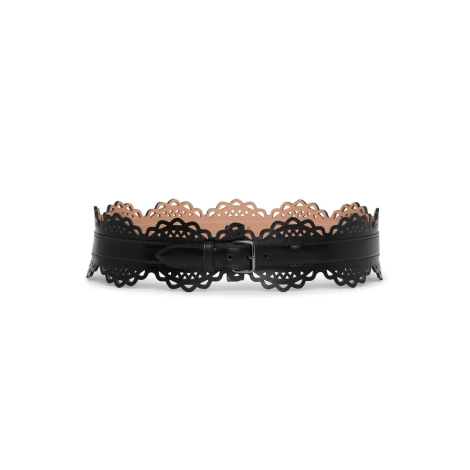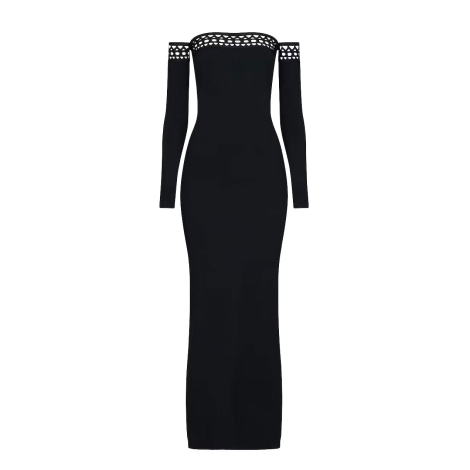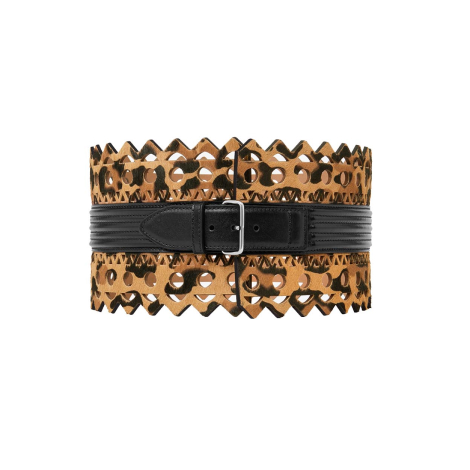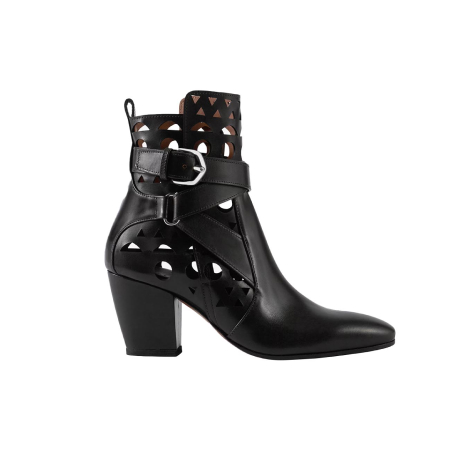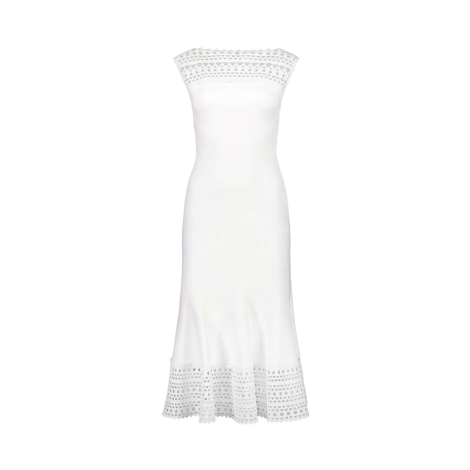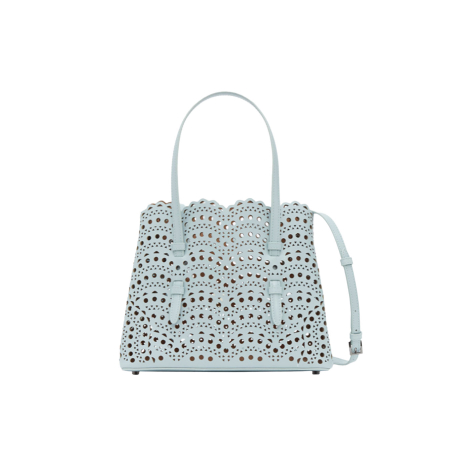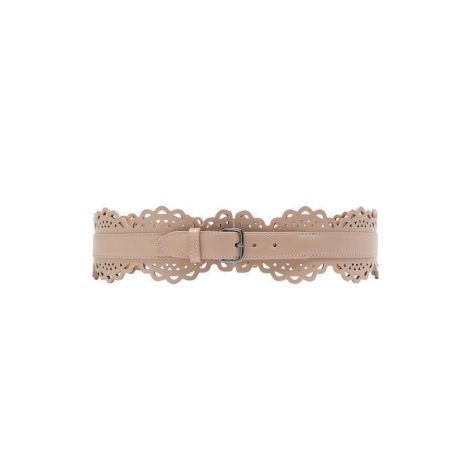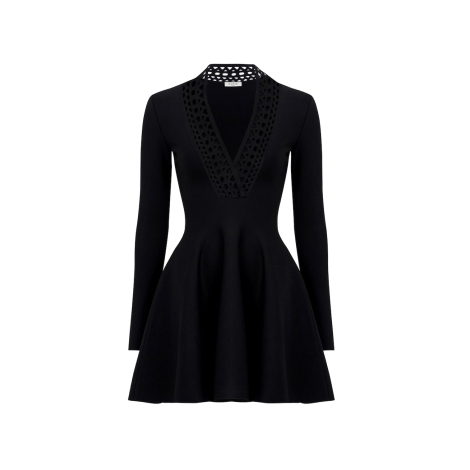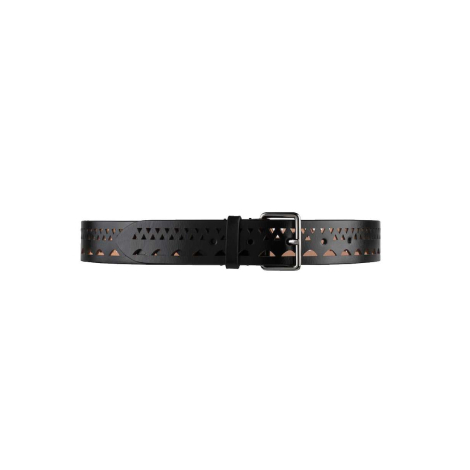
Alaïa’s Vienne | The Poetic Mastery of Azzedine Alaïa
Celebrating the Vienne Pattern
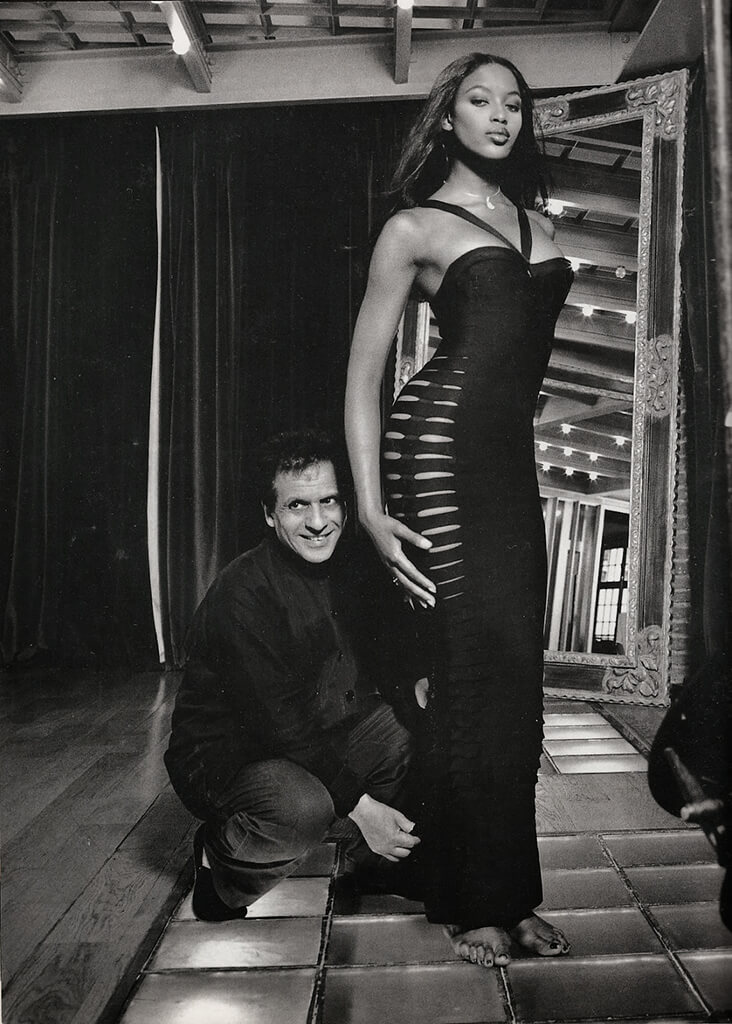
Azzedine Alaïa and Naomi Campbell
Coined ‘Papa’ by his muse Naomi Campbell (and the inspiration behind the Maison’s recently released “Le Papa,” bag), Azzedine Alaïa was and continues to be, a legendary figure in the fashion industry. Celebrated for his breath taking, form-flattering creations and attention to artistic qualities, it's often noted that models would forgo their fees, instead preferring to be paid with the Maison’s garments, thanks to their intrinsic and invaluable allure.
Alaïa, a true classicist, had a profound understanding of the architectural nuances of the female form, the art of draping, and the masterful use of materials. His motifs transcend fleeting trends within the fashion world; his designs are crafted to enhance the essence of the body and the perennial nature that fashion and art are forever.
Perhaps unparalleled in his grasp of feminine anatomy, Alaïa's insight was rooted in both design and an intuitive understanding of what it means to be timeless.
“I am bad with the timeline. I am the age of the Pharaohs. I've erased all the dates.” - Azzedine Alaïa
The poetic essence of Alaïa's creations lies in his deep appreciation of the feminine form and his unbounded sense of expression. He was not just a couturier but a custodian of couture history and artistic heritage, reflecting his Tunisian roots and reverence for intricate patterns.
Inspired by a childhood need to express himself through artistic creation, Azzedine Alaïa began by studying sculpture at the School of Fine Arts in Tunis. At the same time, he shaped his beginnings in dressing by replicating with frightening accuracy models of Dior or Balmain dresses for his neighbours and women of the families of Tunis.

Azzedine Alaïa and Naomi Campbell
Coined ‘Papa’ by his muse Naomi Campbell (and the inspiration behind the Maison’s recently released “Le Papa,” bag), Azzedine Alaïa was and continues to be, a legendary figure in the fashion industry. Celebrated for his breath taking, form-flattering creations and attention to artistic qualities, it's often noted that models would forgo their fees, instead preferring to be paid with the Maison’s garments, thanks to their intrinsic and invaluable allure.
Alaïa, a true classicist, had a profound understanding of the architectural nuances of the female form, the art of draping, and the masterful use of materials. His motifs transcend fleeting trends within the fashion world; his designs are crafted to enhance the essence of the body and the perennial nature that fashion and art are forever.
Perhaps unparalleled in his grasp of feminine anatomy, Alaïa's insight was rooted in both design and an intuitive understanding of what it means to be timeless.
“I am bad with the timeline. I am the age of the Pharaohs. I've erased all the dates.” - Azzedine Alaïa
The poetic essence of Alaïa's creations lies in his deep appreciation of the feminine form and his unbounded sense of expression. He was not just a couturier but a custodian of couture history and artistic heritage, reflecting his Tunisian roots and reverence for intricate patterns.
Inspired by a childhood need to express himself through artistic creation, Azzedine Alaïa began by studying sculpture at the School of Fine Arts in Tunis. At the same time, he shaped his beginnings in dressing by replicating with frightening accuracy models of Dior or Balmain dresses for his neighbours and women of the families of Tunis.
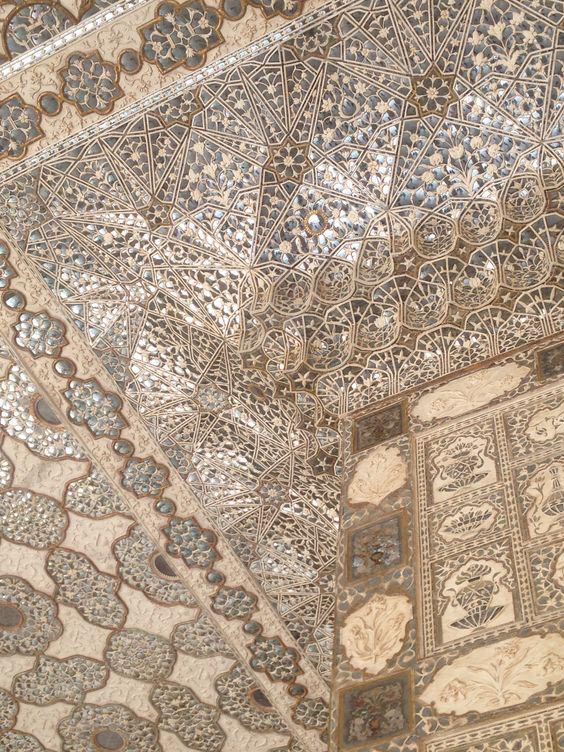
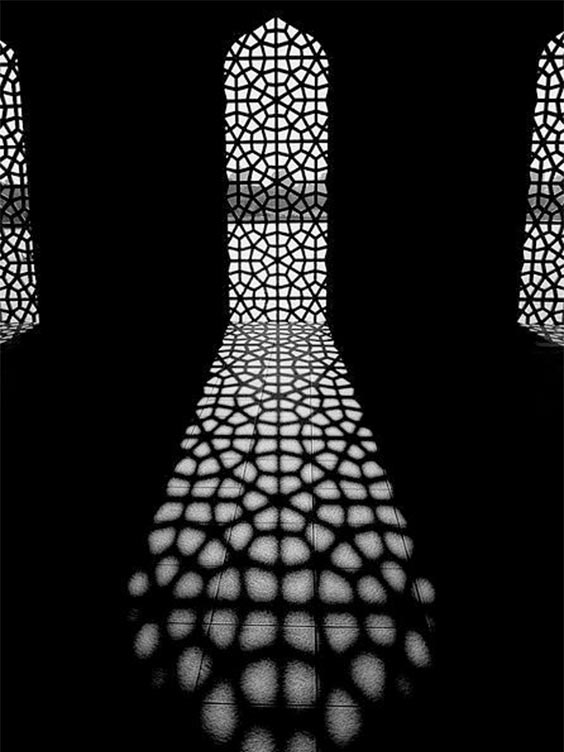
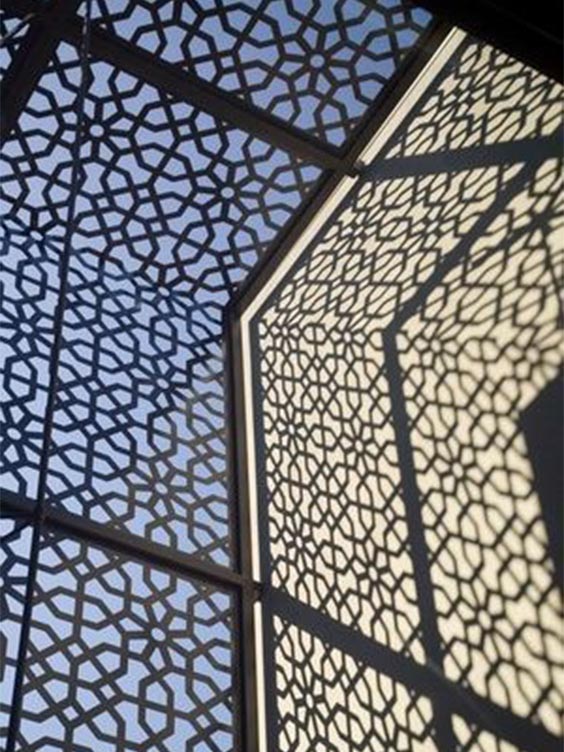
The Vienne, the "if you know, you know" pattern, has been a recurring motif in Maison Alaïa's collections since the brand's inception. This pattern bears the imprint of Alaïa's inspiration from the delicate beauty of lace and the intricate geometries of Moucharabieh architecture. Moucharabieh, an artistic interpretation of its architectural namesake, manifests as an interplay of embroidered cords on a textured canvas reminiscent of ancient papyrus.
This enigmatic design, often seen in the form of window screens, evokes the East, where sunlight weaves intricate patterns of shadow, expressing the allure of ethnic design.
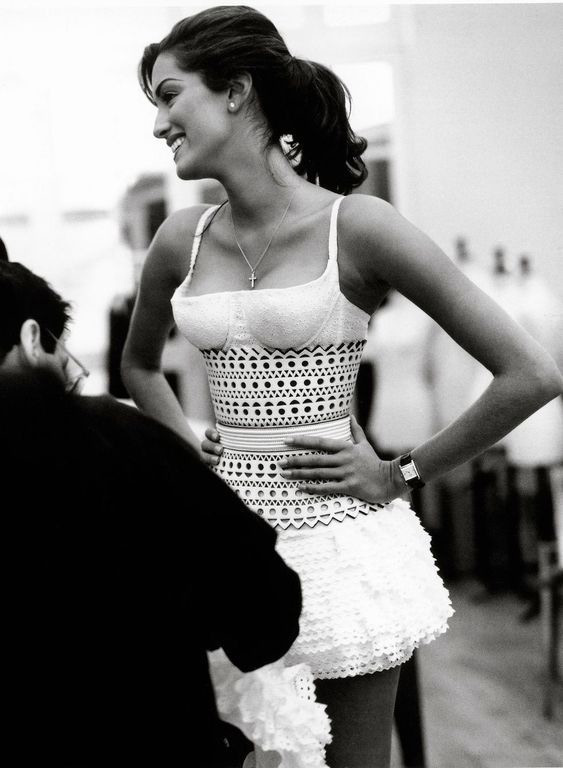
Backstage at ALAÏA Spring 1992
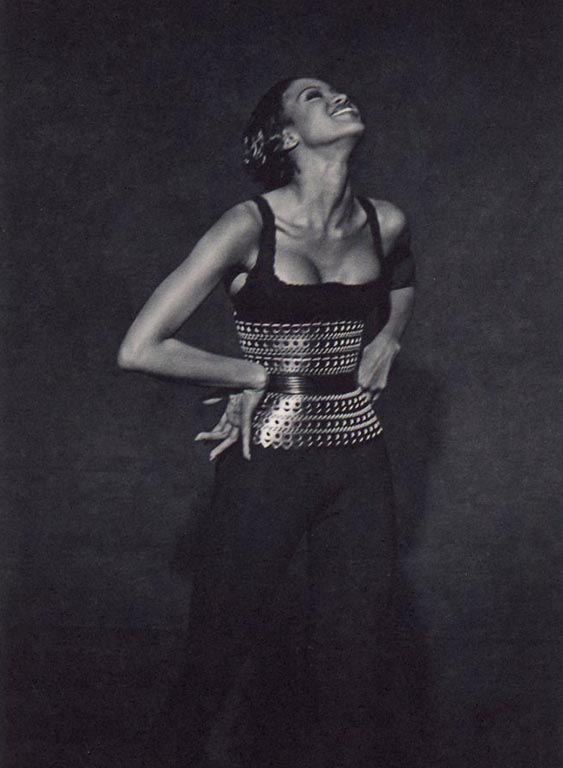
Azzedine Alaïa and Peter Lindbergh. Photography Peter Lindbergh
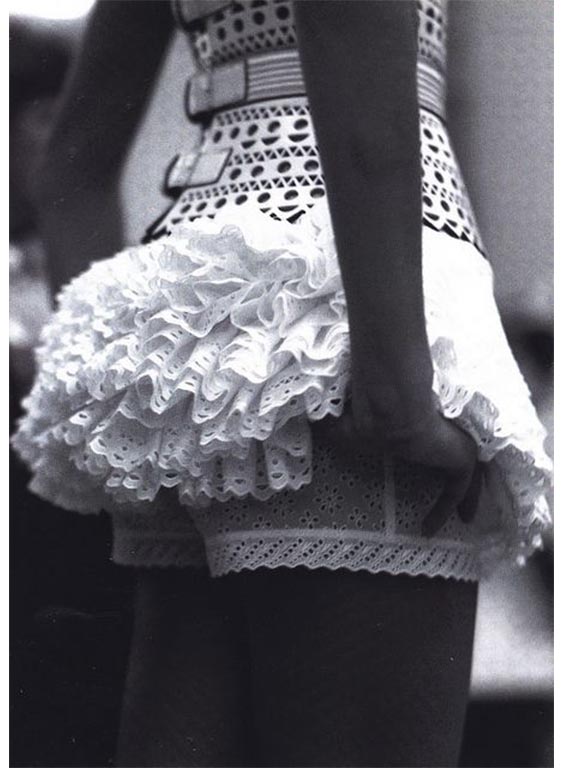
Backstage at ALAÏA Spring 1992
This motif has been reflected in Alaïa’s pieces from the beginning until now.
New Maison Creative Director Peter Mulier is now working in full force, a role taken on in the aftermath of the late Azzedine’s passing in 2017, acknowledging the heritage of the pattern and continuing to display the classic motif in both original and innovative ways, whether cut out directly in a dress, swimsuit, or the iconic corset belt that turned heads in the 90s.
Alaïa's mastery of tailoring and his distinctive reinterpretation of classic silhouettes have cemented his legacy.
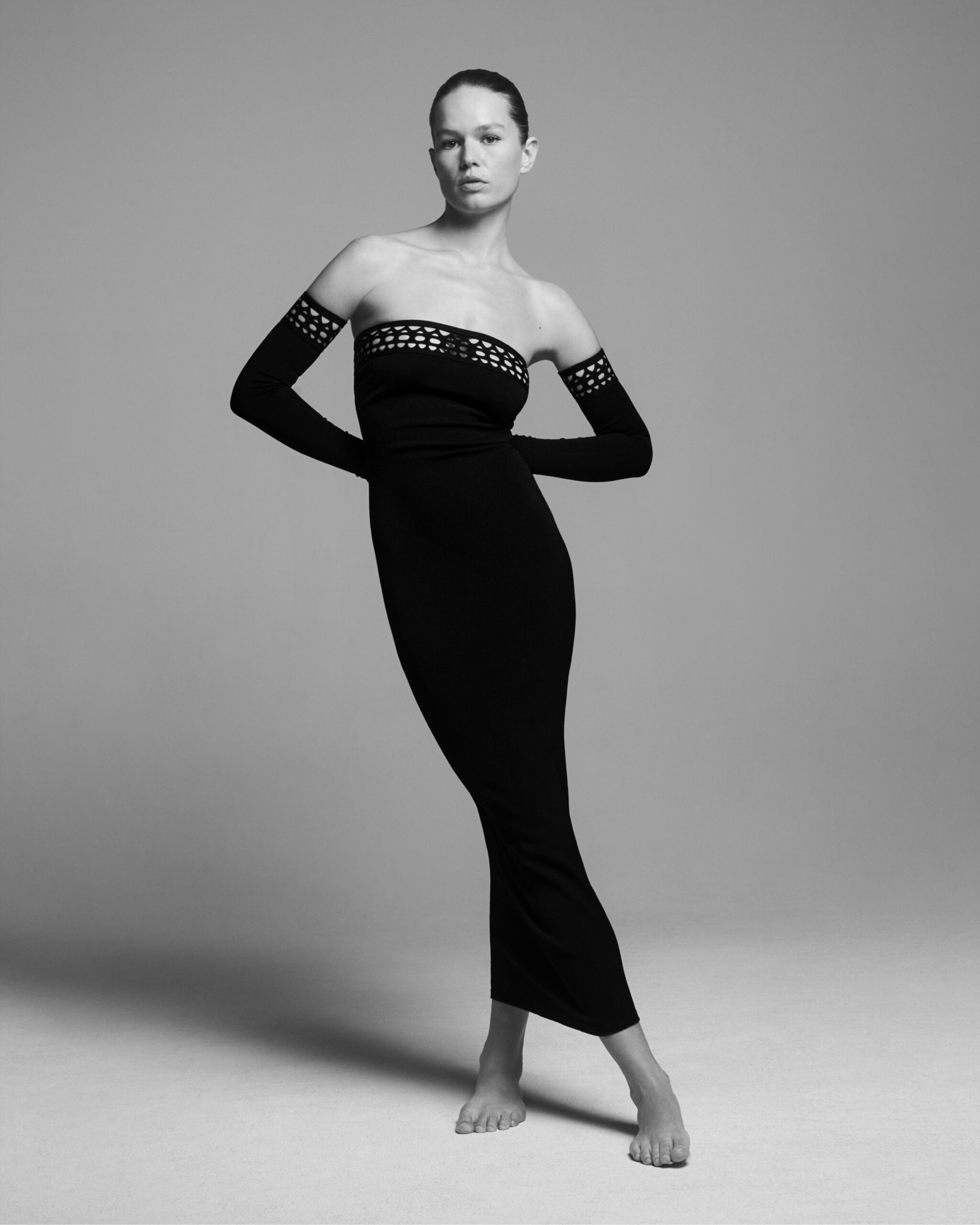
Anna Ewers for ALAÏA WS Archetypes 2024
While this emblem is beautiful in lands afar where the sun creates patterns of shadow on any surface, this ornate pattern is equally a spectacle when worn. Whether it’s the iconic version of the Vienne dress, a swimsuit, the showcase corset belt, or the beloved Mina tote bag, this motif is both iconic and subtle.
Alaïa's cutting skill and unique take on classic silhouettes have made him a true couturier.

Anna Ewers for ALAÏA WS Archetypes 2024
While this emblem is beautiful in lands afar where the sun creates patterns of shadow on any surface, this enigmatic pattern is equally a spectacle when worn. Whether it’s the iconic version of the Vienne dress, a swimsuit, the showcase corset belt, or the beloved Mina tote bag, this motif is both iconic and subtle.
Alaïa's cutting skill and unique take on classic silhouettes have made him a true couturier.



